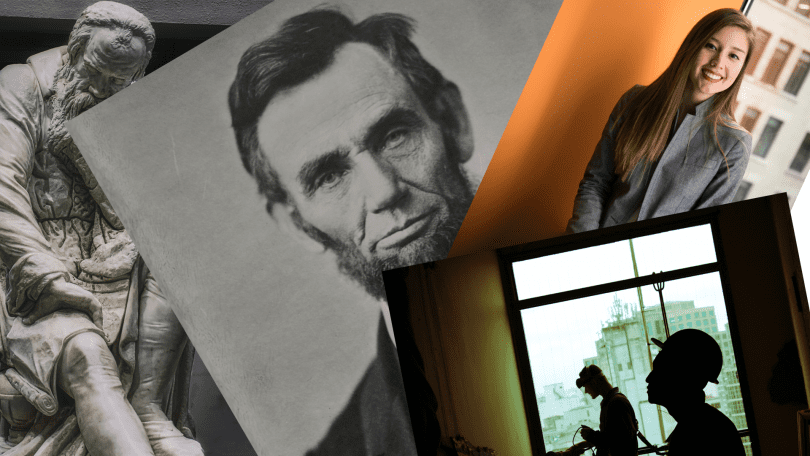We heard in the previous section that the people of this world get quick success in their actions by approaching the demigods of this planet. Let’s hear more about the quality of action itself.
According to the divisions (vibhāgaśaḥ) of the modes of material nature (guṇa) and the actions performed under their influence (karma), the four social classes [brāhmaṇa, kṣatriya, vaiśya, and śūdra] (cātur-varṇyaṁ) have been created (sṛṣṭaṁ) by Krishna (mayā). In spite of (api) being the creator (kartāram) of this system (tasya), we should know (viddhy) Krishna (māṁ) to be the unchangeable (avyayam) non-doer (akartāram). (BG 4.13) Actions (karmāṇi) do not (na) affect (limpanti) Krishna (māṁ); nor are there (na) desires (spṛhā) of Krishna (me) going into enjoying the fruits of action (karma-phale). One who thus knows Krishna (iti māṁ yo ’bhijānāti) does not become bound (na sa badhyate) by actions (karmabhir). (BG 4.14)
In BG 3.27, we learned how we are not the sole doer. Here (in BG 4.13), Krishna points out that He is also not the doer (akartāram). The Supreme Lord, Krishna is a Non-doer in two ways: (1) He is transcendental to the modes of material nature and the bondage of modal actions. (2) He does not interfere with our free-will.
So, how are the actions taking place?
A living entity desires, the material nature facilitates, and the Supersoul permits – that’s how an action fructifies in this material world.
Simply understanding Krishna to be the Supreme Non-doer will extricate us from the bondage of the doer-ship mentality (BG 4.14). Even those in the past (pūrvair api) seeking liberation (mumukṣubhiḥ) have acted (kṛtaṁ karma) after gaining this understanding [of Krishna’s transcendental nature] (evaṁ jñātvā). Therefore (tasmāt), we (tvaṁ) should perform (kuru) our actions (karmaiva) exactly as those successful individuals (pūrvaiḥ) from the past (pūrva-taraṁ) have done (kṛtam). (BG 4.15)
For proper functioning of the social system, Lord Krishna creates a natural division of society into four classes of responsibility (cātur-varṇyaṁ mayā sṛṣṭaṁ), viz., the thinking class (brāhmaṇa), the executive class (kṣatriya), the business class (vaiśya), and the helper class (śūdra). One naturally belongs to one of these classes depending on one’s predominant psychophysical qualities (guṇa) and activities (karma). (BG 4.13) Note that Krishna has no duty and therefore He does not belong to any of these four classes.
There are 4 myths associated with these social divisions that have been obliterated here (BG 4.13):
- One belongs to a particular social class based on one’s birth. [Reality: One automatically identifies oneself in a particular class based on one’s qualities and activities (BG 4.13).]
- Once one is born into a particular social position, it cannot be changed. [Reality: Depending on one’s association, one’s inclinations and qualities can be modified (BG 13.22).]
- This kind of social division exists only in India. [Reality: We find this kind of division based on one’s primary occupation everywhere in the world. Eg. Even in airlines, we find executive, business, and economy classes.]
- Connecting with God is only possible if you are born into a higher class. [Reality: One can dedicate one’s natural occupation toward the pleasure of Krishna and thus purify oneself regardless of the specific social role one may be playing (BG 9.27).]







